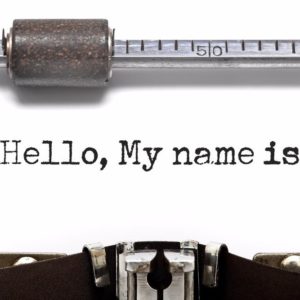

Do You Crave Recognition? Are You Sure?
Working one-to-one with a client years ago, I asked what motivated him. He said, “Definitely recognition, but then again, that’s what everybody wants, isn’t it?”
Well, yes…and no.
For over a decade and a half I’ve asked my clients what motivates them and among the top three most common responses is “Recognition”. So in that respect, my client was correct.
But what I’ve also learnt over that time is that recognition comes in many, many, many forms. So assuming people want the same type of recognition as you would be incorrect.
Let’s get back to my client…
When he said recognition was a key motivator, I asked him, “What do you mean by recognition?” He looked confused. Surely I must know what he meant. “Well, obviously, I want to be praised for what I do.”
So I asked, “What sort of praise do you want? And who would it matter most to you to receive it from?”
“I don’t care – I like any praise, from anyone. Even if someone in my gym says to me, ‘Good workout mate’ I feel great.”
We’d started to pin down exactly what recognition meant to him. But what he didn’t realise (as I didn’t until I started digging into the brains of hundreds of clients) is that’s just one way of looking at it.
There are lots of ways recognition can manifest itself – for example, being recognised with money, time or appreciation, or people knowing of your credibility and reputation. Then within each of those categories, there are numerous nuances that appear:
Money
- “Recognition to me is getting a pay rise.”
- “Recognition to me is seeing my company’s profits increase.”
- “Recognition to me is earning more than my peers.”
- “Recognition to me is clients buying more and more of my services.”
Time
- “Recognition to me is being given extra annual leave.”
- “Recognition to me is my boss telling me to take the morning off.”
- “Recognition to me is my boss taking time to have a one-to-one with me.”
- “Recognition to me is being allowed to work flexible hours.”
Appreciation
- “Recognition to me is when my boss says I’ve done a good job.”
- “Recognition to me is when my team says I’ve done a good job.”
- “Recognition to me is when my customers say I’ve done a good job.”
- “Recognition to me is a simple thank you.”
Credibility
- “Recognition to me is when people ask for my help.”
- “Recognition to me is knowing I’m the first person people think of for my field of expertise.”
- “Recognition to me is winning industry awards.”
Reputation
- “Recognition to me is hearing my boss has been saying good things about me to other people.”
- “Recognition to me is hearing my customers have been saying good things about me.”
- “Recognition to me is when you Google my name lots of great stuff comes up.”
- “Recognition to me is being known as the ‘go to’ person in my industry.”
There are plenty more when you really start digging around into people’s psyches, but I think you get my drift.
It’s worth the time spent digging
Knowing, with complete clarity, the form recognition has to take to push your buttons is incredibly useful when it comes to being happy in your career. If you know what your recognition needs are you can take action to increase the chance you’ll get the recognition you seek – whether that’s taking a job with an annual bonus, entering your work for an award or simply being in an environment where a ‘thank you’ really means something.
Does recognition matter to you? And what form does that take? Or have you never given it much thought before? The comment box is ready and waiting if you’re happy to share your thoughts.








Wouldn’t mind recognition for the sci-fi novel I’m working on, Rogue Planet, but arousing the interest of a literary agent is like applying to get a seat on the first trip to Mars.
Hope you are keeping well and busy.
Good article, Jennifer. And so insightful. ‘Recognition’ does mean different things to different people – and at different times too.
As a for instance; I found myself chuffed to bits this week when chatting to a colleague who recounted a complimentary comment made to him about me from one of my old managers. This manager had never given me any indication that he thought of me in such a complimentary way and, finding out that he did, absolutely boosted my confidence and feeling of self-worth within the workplace. Little things, eh?
I’ve been really making the effort to give a compliment to the person it’s about, not just tell someone else about them. As you’ve shown, imagine the difference it would have made to you at the time to know that manager thought you were good!